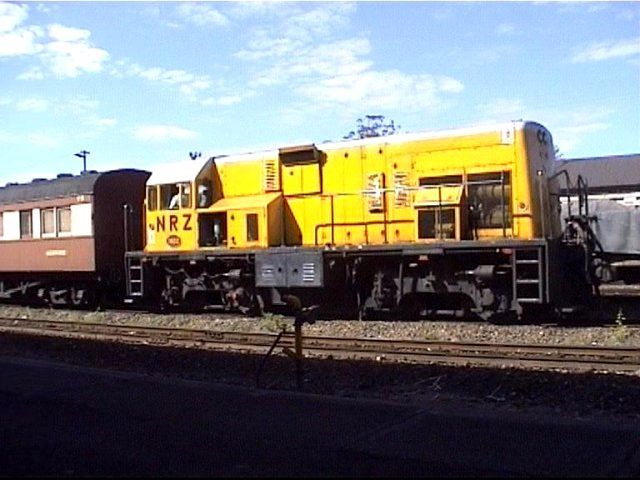EDITORIAL COMMENT: NRZ must move quickly to reclaim its position as major transporter

The National Railways of Zimbabwe (NRZ) will not get back on track overnight.
It will take a lot of effort on the part of Government, company management and other key stakeholders to enhance its viability and bring back business to the parastatal.
A lot of critical thinking is needed on the part of policy makers and management, a willingness by investors to get involved and dedication on the part of the company’s staff will help. Industry — and by this we are referring to movers of bulk cargo — has to rediscover their interest in the NRZ.
As efforts to boost the parastatal continue, it has used internal resources — $2,9 million — to acquire 31 new wagons, which were commissioned on Friday in Bulawayo. We take this as a small yet very important milestone on the road to bringing the NRZ to its old glory.
Officiating at the event, Transport and Infrastructural Development Minister, Dr Joram Gumbo, rightly acknowledged the serious challenges the NRZ is facing, but hailed the acquisition of the wagons from China Railway Rolling Stock Company (CRRC) and other initiatives being put in place to revive the railway company.
“As the parent ministry,” said Dr Gumbo, “we are happy with the progress that the NRZ board has made regarding the turnaround programme, which is anchored on the recapitalisation of the organisation. On our part, we undertake to expedite all Government approvals, as may be required from time to time. The country risks losing both rail and road capabilities through under-utilisation of rail, as a result of the diversion of rail friendly business to road, while at the same time the road network is over-used leading to its fast deterioration, congestion, and increased frequency of accidents and loss of life.
Through the implementation of the recently commissioned transportation master-plan, we hope to shift significant portions of bulk cargo back to rail, and be able to save the costs of maintaining the road network. While this can be achieved in the long run, we are immediately faced with the challenge of attracting sound partners or financiers to the NRZ project; hence the subject of ring-fencing of certain bulk cargo to NRZ.”
Indeed, the new wagons will help boost the NRZ’s capacity to move more freight given that the ones it was using were too old and not that efficient.
However, much more internal work than procurement of wagons needs to be done for the parastatal to escalate its capacity. Priorities must include investing in locomotives, the track itself, handling facilities as well as signalling and communication systems. The new engines should obviously be much faster and more efficient than the existing ones so that they complement the new wagons in providing a better service. The track must be made more navigable than it is now. Terminals must be spruced up and new equipment and machinery procured to improve handling of cargo.
Communication systems should be modernised to not only minimise accidents, but also improve efficiency.
It has been estimated that the parastatal needs up to $650 million to recapitalise, a mammoth sum of money that may not be raised internally.
The Government is aware of this as Dr Gumbo said. We therefore encourage him and his team at the NRZ to redouble their efforts in courting a partner to inject the much needed resources.
But as the minister indicated, the challenges facing the parastatal also have a lot to do with a flight of cargo from rail to road as the NRZ struggles for efficiency. Movers of bulk freight are opting to use the more expensive road transport because they are not convinced that the NRZ can deliver and deliver on time.
To help bring back the cargo, authorities want to reinvest in the company on one hand while on the other, using the law or moral suasion to achieve the same.
Legislating would be good, but we argue moral suasion is a better option. Industry seeks profit all the time and there will be no need to force them to use rail transport if the NRZ regains its efficiency. The NRZ already has the twin advantages of its ability to move more goods at rates that are lower than haulage trucks. So as long as it is running smoothly, business would stampede back to trains.
As all these strategies are being worked out and implemented, we must not lose sight of the fact that for the trains to deliver, someone has to move them, someone has to maintain them. Workers at the parastatal have fought management for the past decade or so over salary arrears. Company general manager Engineer Lewis Mukwada, speaking at the wagon commissioning ceremony on Friday, said workers are owed a cumulative $80 million in salary arrears stretching over a period of 12 months.
Workers expect creative strategies for the employer to liquidate its debt to them as they have endured much social and economic anguish in recent years. However, we are optimistic that as more business returns and the NRZ rediscovers its feet, it would be in a better position to pay the salary arrears, thus motivating its staff.











Comments